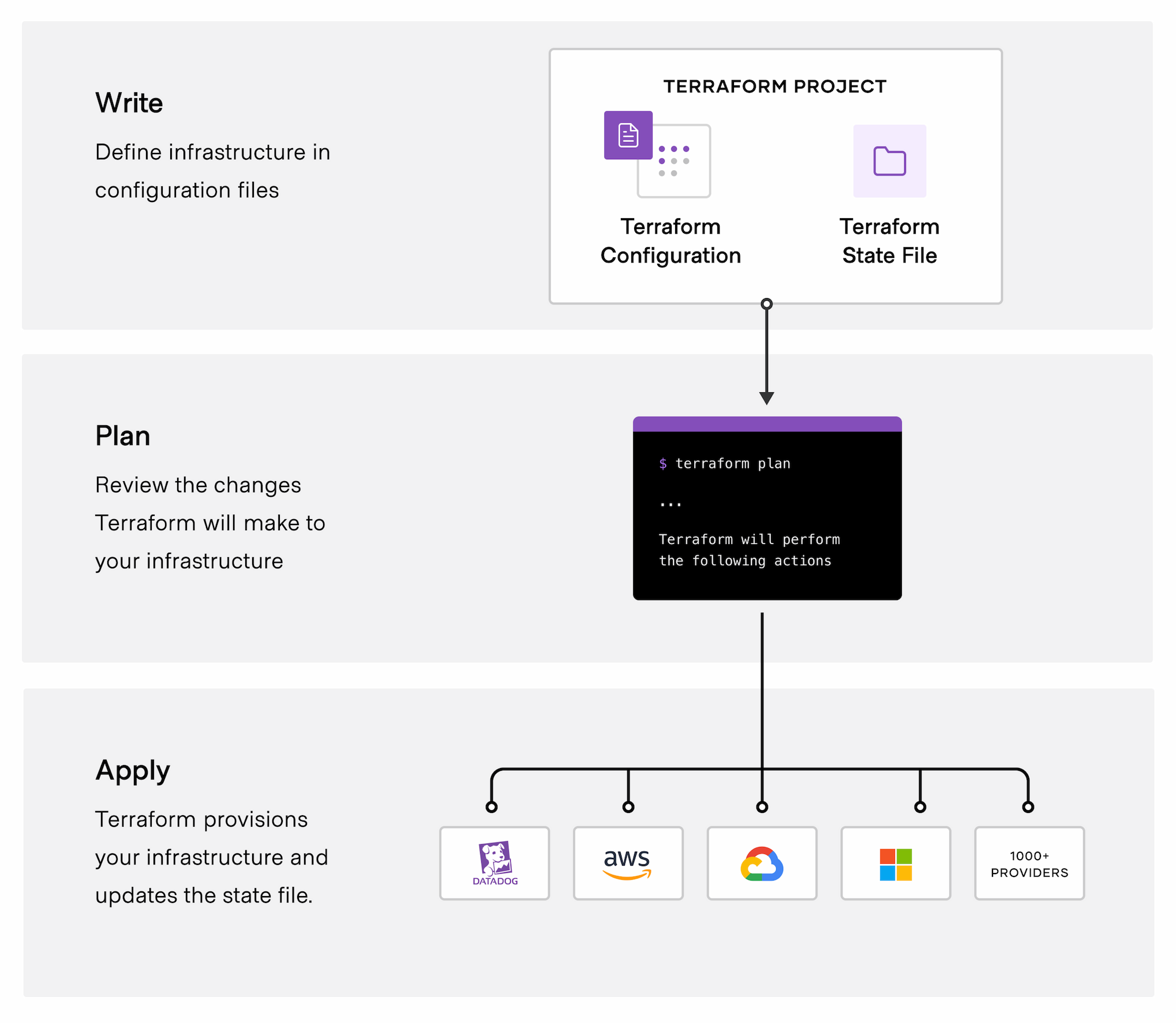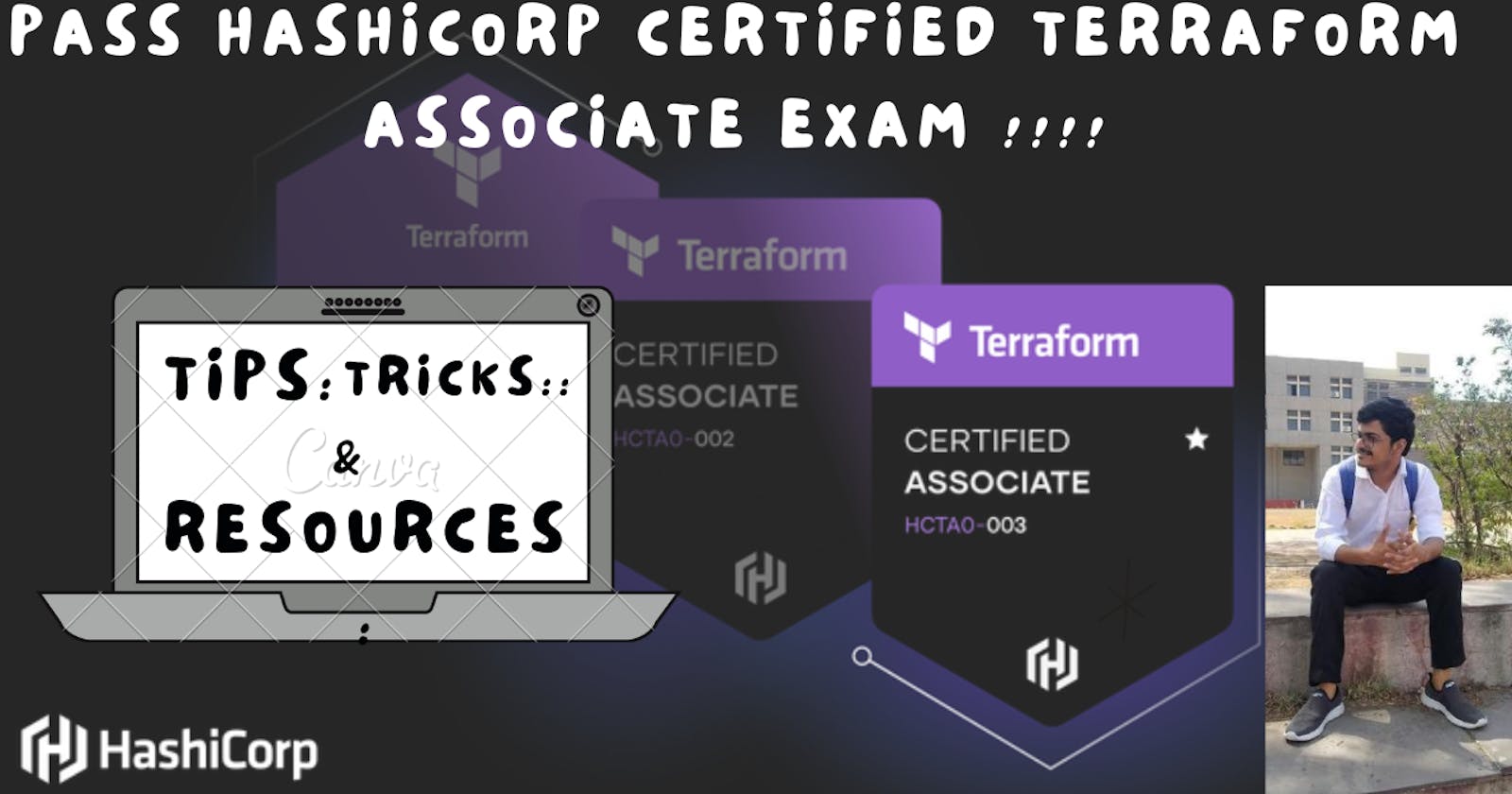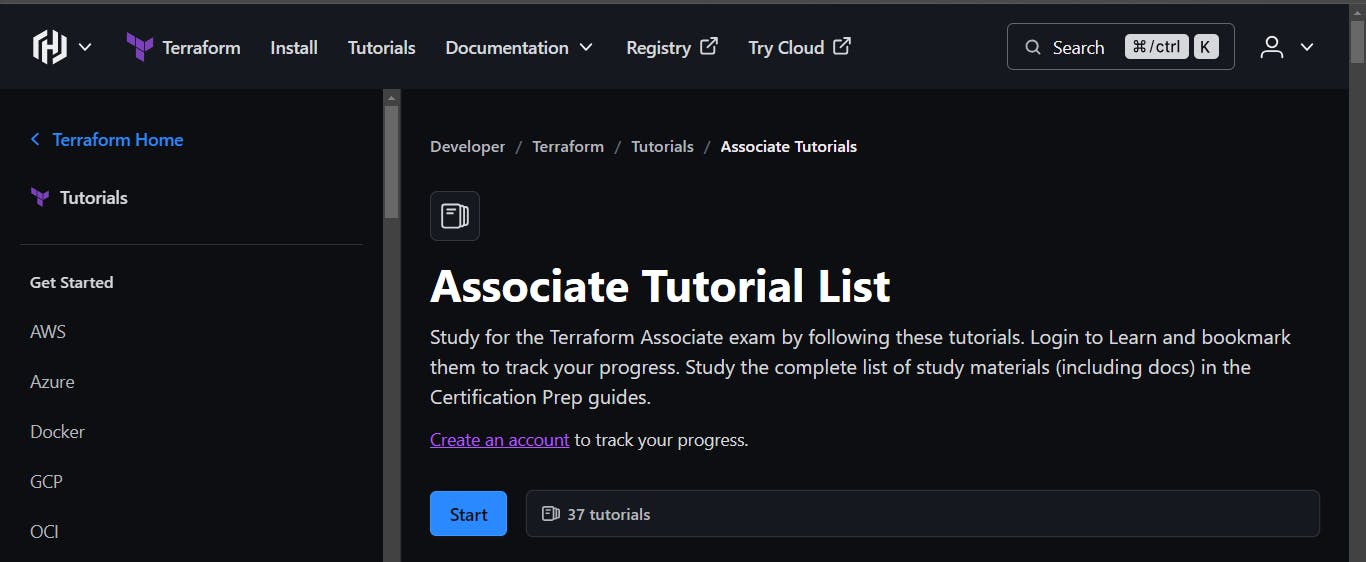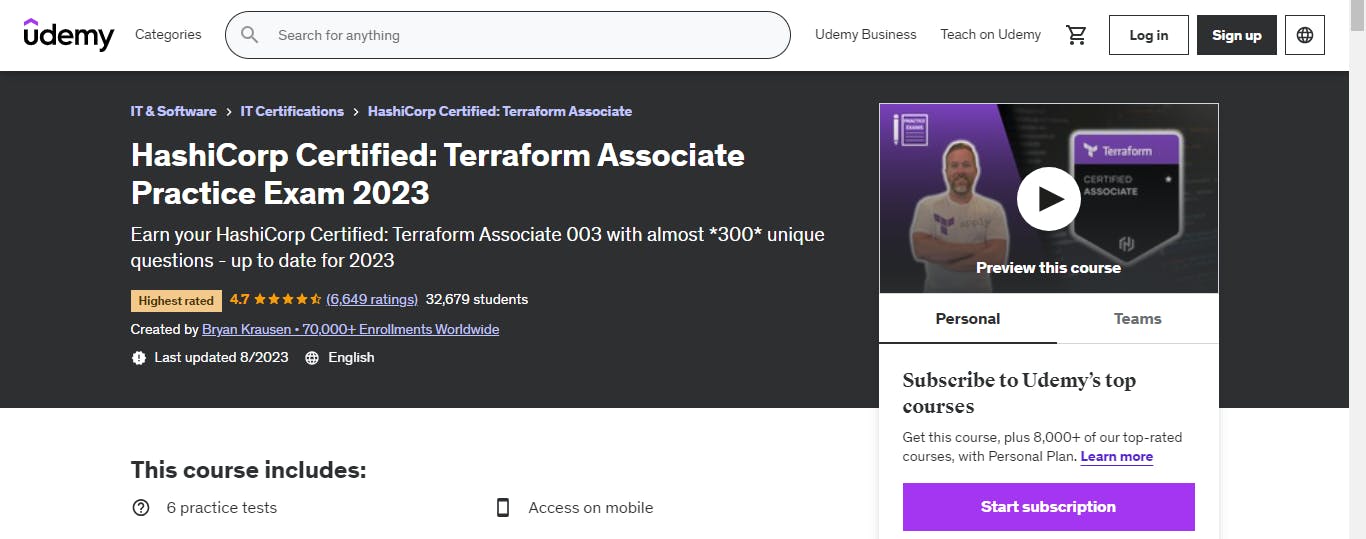How I Passed Hashicorp Certified Terraform Associate Exam in First Attempt!
My Journey to Becoming a Terraform Associate: Tips, Tricks, and Insights.
Introduction
Hello, I'm Dhananjay, a cybersecurity master's student with a newfound passion for DevOps and cloud computing. Over the past four months, I've been on a journey of exploration and self-improvement, diving into the world of Terraform. This venture began with the "90 Days of DevOps" challenge, and it's been an incredible ride so far. Despite my limited practical experience, I was determined to take the Terraform Associate exam to deepen my knowledge and gain a better understanding of industry best practices.
Why Terraform
Terraform, an infrastructure as code (IaC) tool, quickly caught my attention. Its ability to deploy complex infrastructures with just a few clicks fascinated me. I realized that learning Terraform was essential not only for my academic pursuits but also for my future career in cybersecurity and cloud computing.

Exam Review
To ensure you're well-prepared for the Terraform Associate exam, it's essential to review the official study guide provided by HashiCorp. This study guide covers the exam syllabus in detail and includes sample questions that give you a glimpse of what to expect on the actual exam.
You can access the study guide here: Terraform Associate Certification Study Guide
The study guide is a valuable resource to complement your preparation efforts. It offers a structured approach to the exam topics and provides sample questions to help you gauge your readiness. Make sure to go through it thoroughly as part of your exam preparation.
Exam Details: Fees, Number of Questions, and Passing Criteria
Before embarking on your Terraform certification journey, it's essential to have a clear understanding of the exam logistics. Here's what you need to know:
1. Exam Fees: The Terraform Associate certification exam typically comes with an exam fee. The fees for this certification is approximately $80. Please note that exam fees can vary by location and may be subject to change. Be sure to check the official certification website for the most up-to-date pricing information.
2. Number of Questions: The Terraform Associate exam usually consists of approximately 57 questions. These questions cover a range of topics related to Terraform, including its core concepts, configuration language, and best practices. It's important to manage your time effectively during the exam to ensure you have ample opportunity to answer all questions.
3. Passing Criteria: To pass the Terraform Associate exam, you typically need to achieve a minimum passing score, which is usually around 70%.
Understanding these logistical details is crucial for planning your certification journey effectively. Make sure to check the official Terraform certification website for the most current information on exam fees, the number of questions, and passing criteria to ensure a smooth and successful exam experience.
Preparation
When it came to preparing for the Terraform Associate exam, I relied on a combination of resources and study materials. Here's what worked for me:
YouTube Videos: I started my journey with this fantastic YouTube video, which provided a solid conceptual foundation while allowing for hands-on experience. Real-world troubleshooting was a valuable part of this learning process.
Official HashiCorp Tutorials: HashiCorp, the creators of Terraform, offers a treasure trove of tutorials organized meticulously for exam preparation. You can find them here. These tutorials were instrumental in deepening my understanding of Terraform.
Just click on start and follow along the tutorials.
Udemy Course: I also enrolled in a Udemy course that offered comprehensive coverage of Terraform topics. It provided structured learning and further enriched my knowledge.
Key Topics and Concepts:
To succeed in the Terraform Associate exam, it's crucial to have a solid understanding of the key topics and concepts that are fundamental to Terraform. Here are some of these essential concepts:
Providers:
Definition: Providers are responsible for defining and configuring the cloud or infrastructure platform where resources will be created. Each provider has its own configuration block within a Terraform configuration file.
Example: Defining an AWS provider:
provider "aws" { region = "us-east-1" }
Resources:
Definition: Resources represent the cloud infrastructure components you want to manage with Terraform, such as virtual machines, databases, and networks. Each resource is associated with a specific provider and resource type.
Example: Creating an AWS EC2 instance:
resource "aws_instance" "example" { ami = "ami-0c55b159cbfafe1f0" instance_type = "t2.micro" }
Variables:
Definition: Variables allow you to parameterize your Terraform configurations, making them reusable and dynamic. Variables can be defined in a separate variables file or directly within a configuration file.
Example: Defining and using a variable:
variable "instance_count" { description = "Number of EC2 instances to create" type = number default = 2 } resource "aws_instance" "example" { ami = "ami-0c55b159cbfafe1f0" instance_type = "t2.micro" count = var.instance_count }
Modules:
Definition: Modules are reusable, encapsulated Terraform configurations that can be used to structure and organize your code. They allow you to create custom abstractions and promote code reusability.
Example: Creating a simple module:
module "web_server" { source = "./modules/web_server" instance_count = 3 }
State Management:
Definition: Terraform maintains a state file that keeps track of the current state of your infrastructure. State management is critical for tracking changes and ensuring that Terraform can manage resources accurately.
Example: Terraform automatically generates and updates the state file to reflect the real-world state of your infrastructure.
Outputs:
Definition: Outputs allow you to expose specific values from your Terraform configuration that can be useful for other processes, scripts, or external applications.
Example: Defining an output:
output "instance_ip" { value = aws_instance.example[*].public_ip }
Data Sources:
Definition: Data sources allow you to retrieve information from an existing resource in your cloud provider. They are read-only and can be used to import existing resources into your Terraform configuration.
Example: Using a data source to retrieve information about an AWS VPC:
data "aws_vpc" "example" { id = "vpc-0123456789abcdef0" }
Provisioners:
Definition: Provisioners are used to execute scripts or commands on instances after they are created. They can be useful for tasks like software installation and configuration.
Example: Using a local-exec provisioner to run a script on an EC2 instance:
resource "aws_instance" "example" { ami = "ami-0c55b159cbfafe1f0" instance_type = "t2.micro" provisioner "local-exec" { command = "echo 'Hello, Terraform!'" } }
Understanding these key Terraform topics and concepts is essential for success in the Terraform Associate exam. It's important to not only grasp their definitions but also know how to use them effectively within your Terraform configurations.
Exam Experience
The Terraform Associate exam questions were, in many ways, similar to those in the practice tests I had taken. Also thanks to the hands-on experience gained from the resources mentioned earlier, I felt well-prepared to tackle even the trickiest questions.
Tips for Success
Here are some practical tips and advice for success in the Terraform Associate exam:
Understand the Concepts: Begin by thoroughly understanding Terraform concepts. The YouTube video and official documentation are great starting points.
Practice, Practice, Practice: Hands-on practice is key. Don't be afraid to make mistakes during your practice tests; it's how you learn.
Flag Tricky Questions: When faced with a particularly challenging question, flag it for review and move on. Sometimes, another question may provide hints or context for answering the flagged question.
Context Matters: Pay close attention to the scenario presented in each question. The correct answer often depends on the specific circumstances described.
In conclusion, my journey to becoming a Terraform Associate was an enriching experience. I hope that my insights and the resources I've shared here will help you in your own Terraform certification journey. Remember, with determination, practice, and a solid understanding of the fundamentals, you can achieve your certification goals. Good luck on your Terraform Associate exam!



